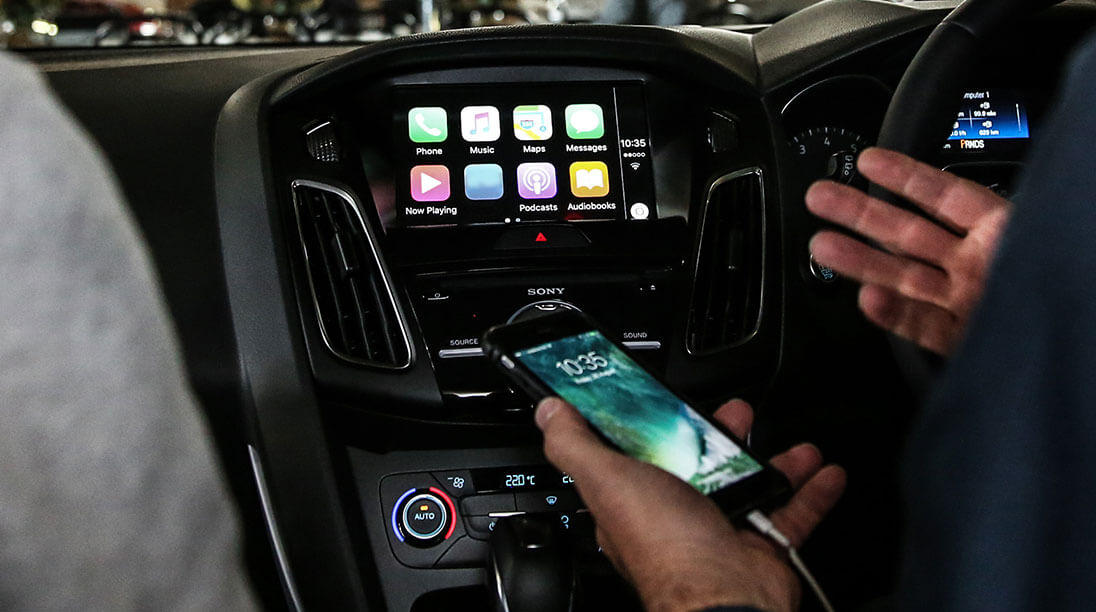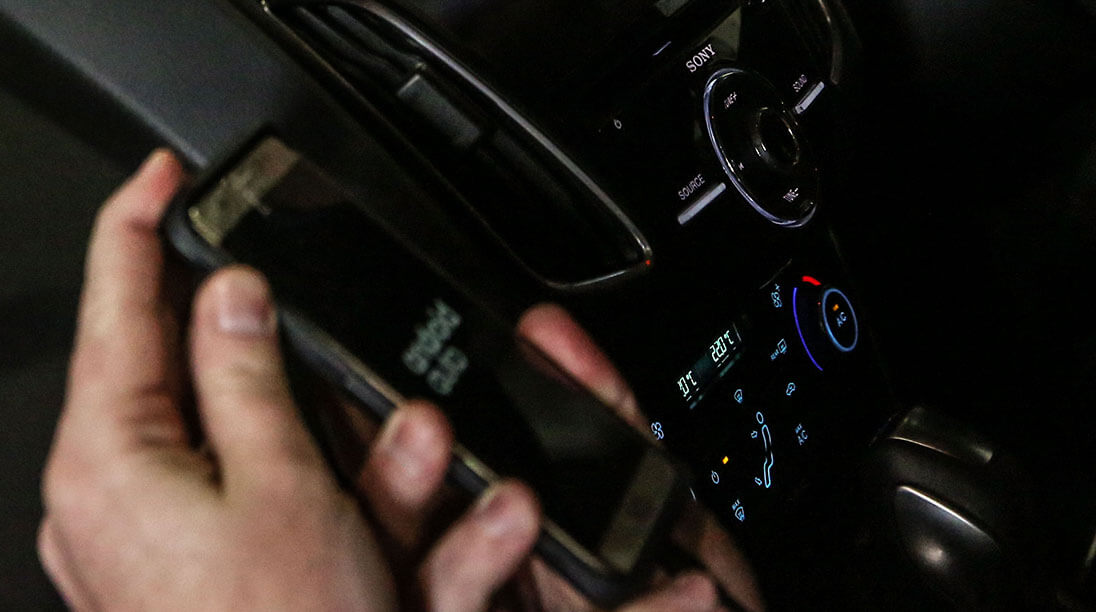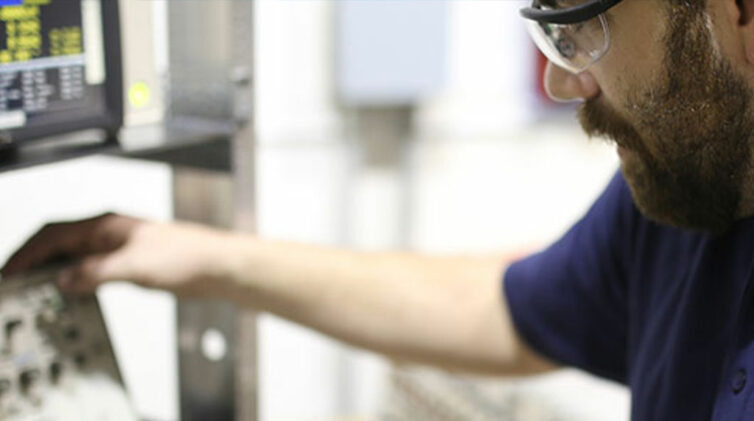The association, which represents all the state-based motoring clubs, also warned that there was a danger car-makers could keep vehicle data secret and force owners to use only franchised dealers to service their cars.
This could make the owners subject to unreasonable pricing, according to AAA chief executive Michael Bradley.
“Many industry observers believe that … car owners may be left with little choice but to take their car to a branded repairer, rather than an independent repairer of their choice, which will affect competition and cost,” Mr Bradley said.
The AAA supports the choice of repairer code of conduct that was adopted two years ago, although it is unclear how many car-makers have made their service and repair data, and service bulletins, available.
Mr Bradley said the current situation in Europe had highlighted the issue of who owns a vehicle’s data and who should have access to it.
“The experience in Europe has been that drivers of connected cars have only been able to share vehicle data with the relevant car-maker.”
This means they effectively have no choice, and no bargaining power, as to who services their vehicles, according to Mr Bradley.
“In addition to the potential for extra cost, there are also potential privacy concerns, as connected car technology opens up the opportunity for car-makers to pass on or sell personal information to third parties, such as insurers or marketers,” Mr Bradley said.
“This is significant when you consider an investigation conducted last year on behalf of Europe’s car clubs showed that highly personal information synced from mobile phones can be captured and transmitted back to the manufacturer.”
The repairer of choice campaign was started by the Australian Automotive Aftermarket Association (AAAA) in 2009 and is starting to gain traction among some Canberra politicians despite several changes of government.

Privacy please: The Australian Automobile Association (AAA) has expressed concern over data usage in connected cars.
“Wireless telematics technologies are rapidly becoming part of the new evolution of modern vehicles,” AAAA chief executive Stuart Charity told GoAuto.
“The ‘connected car’ is about to change the way we drive and think about our personal mobility.
“If left unregulated, this technology will put the car manufacturer in a monopolistic position in relation to controlling which third party service providers have access to the vehicle.”
“We must ensure that this new technology respects the principles of fair competition and open choice for consumers and independent repair and service operators.”
The issue of privacy and choice of repairer for new cars will soon be an issue for many Australian drivers as most European–made cars are now sold with an inbuilt SIM card to facilitate the e-call service, which summons the emergency services if there is a major impact.
This SIM card connects the vehicle to the internet and allows car-makers to send and receive data to the car.
Mr Bradley said connected cars offer many consumer benefits.
“For example, these vehicles can talk to the world around them, helping drivers to be aware of and avoid traffic snarls or dangers on the road.
“This can help drivers reach their destination more quickly, more safely and more fuel efficiently. In the event of an accident a connected car can alert emergency services bringing help more quickly.
“But the control of the data generated by these vehicles – and the emerging debate surrounding who gets to access it – is set to pose potential privacy risks and possibly drive up running and repair costs due to impaired competition.”
A report in September by management consultant McKinsey and Co estimated that the value of vehicle-generated data, and the services it could be used to provide, could be somewhere between $US450 billion ($A590b) and $US750b ($A985b) by 2030.
The survey showed drivers were interested in data-based services that make driving safer and more efficient and that save them time or money.
McKinsey uncovered more than 30 potential services that could be generated from vehicle data, although some of them also required access to personal communications data from a driver’s smartphone. The survey found 60 per cent of customers would be willing to grant access to personal data if it was safety or convenience related, although there was a big bias towards younger drivers being willing to do this.
Mr Bradley said the collection of data was not necessarily sinister, but he said it was important that Australians were told about what information would be collected and what it would be used for before the technology becomes widespread in Australia.
“It’s also important that our politicians consider the need for regulation to protect the consumer rights of Australian motorists.”
The AAA has started a ‘My Car My Data’ website so it can ask car-makers what their policies are regarding data collection. The website emulates a similar website started by the Federation Internationale d’Automobile (FIA), which represents all motoring clubs around the world.
So far the AAA has asked 24 companies for their data collection policies, but only eight have responded, and mainly to say that they do not yet have vehicles that transmit data.
AAA spokesperson Nick Tyrrell said the responses received so far indicated that there “was little appetite from the auto brands to be particularly transparent”.
He said one brand even went so far as to not answer the questions about data transparency until the AAA provided more information about how it was going to use the answers on its My Car My Data website.
“New technology brings great new stuff, and we talk more about the positives than the negatives on our website,” Mr Tyrrell said, however, he added that there was a power imbalance between the car brands and consumers.
“The balance has swung a little bit too far in favour of the car brands because consumers don’t know what they are giving them.”
He said the FIA found some shocking examples during its research in Europe.
“They went and got a BMW 320d and put diagnostic equipment on it. That thing was collecting the phone book from the driver’s mobile phone and sending it back to BMW.”
He said that was among the data that car-makers wanted to monetise, as outlined in the McKinsey report.
“Car brands should be doing the right thing by their buyers, letting them know what is going on and giving them some choice around it.”
“We’re saying consumers should be in the driving seat.”
By Ian Porter













 Read More: Related articles
Read More: Related articles

